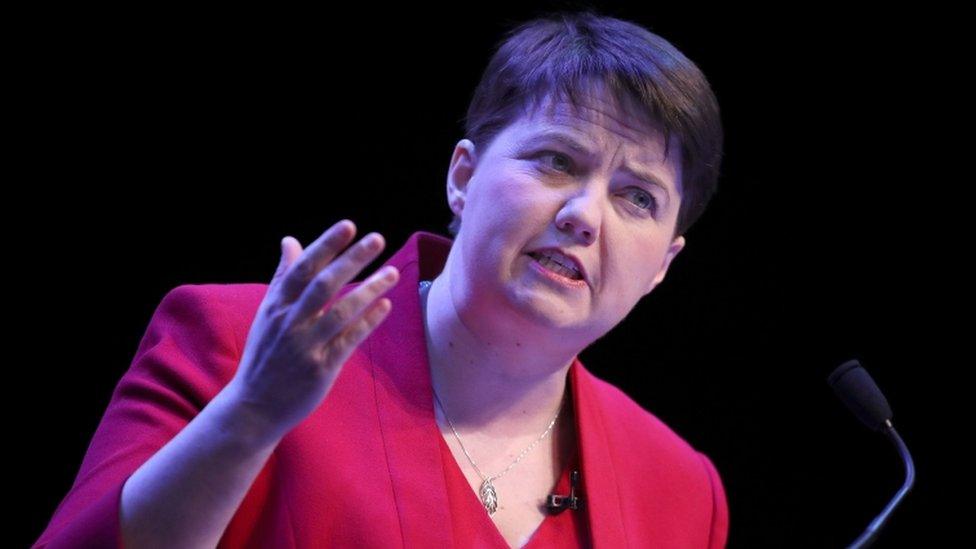Swinney defends school curriculum reforms
- Published
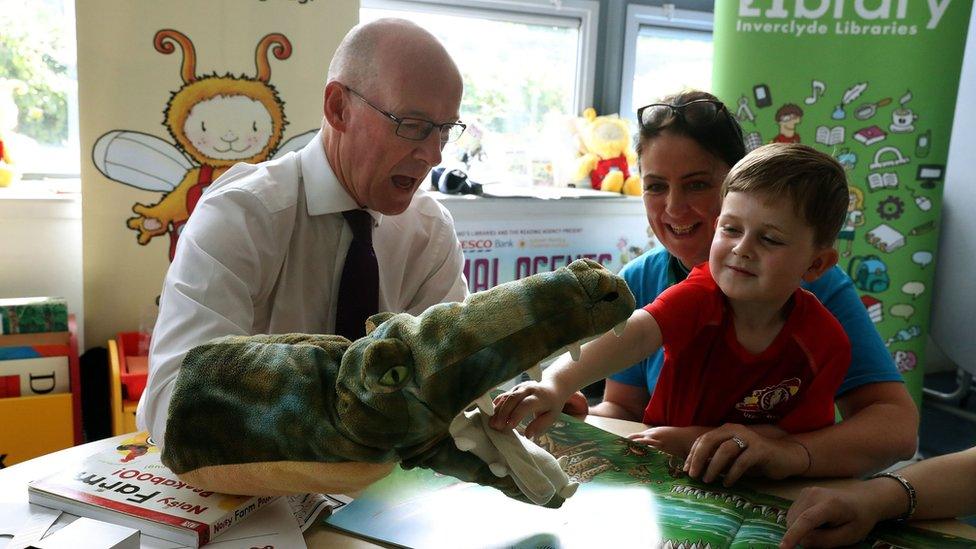
John Swinney has been Scottish education secretary since the 2016 Scottish election
Education Secretary John Swinney has defended Scotland's Curriculum for Excellence as pupils prepare to receive exam results on Tuesday.
The Scottish government is implementing a series of reforms to how schools are run and pupil performance measured.
There have been calls for a more consistent approach to how changes to assessments are brought in.
Mr Swinney said his goal was for schools to spend "less time on assessment and more time on learning."
The Scottish government has set out a series of reforms to education governance, with the latest set of "sweeping new powers" for schools aimed at "freeing our teachers to teach".
Mr Swinney said it would take time to see how the reforms bed in, but he said they should make "a real difference" to the workloads of teachers.
He said: "We'll see over time the impact of the reforms that I've set out. What we've done since I became education secretary is to provide the absolute clarity on the delivery of the curriculum that the teaching profession were looking for, while maintaining the broad reach of Curriculum for Excellence, which is an internationally-acclaimed curriculum.
"We've undertaken very swift measures to reduce the workload of teachers. I recognise from my conversations with teachers around the country that that was a particular problem, and the changes to national assessments which begin in the forthcoming academic year will, I think, see a real difference in the workload of teachers around the country."
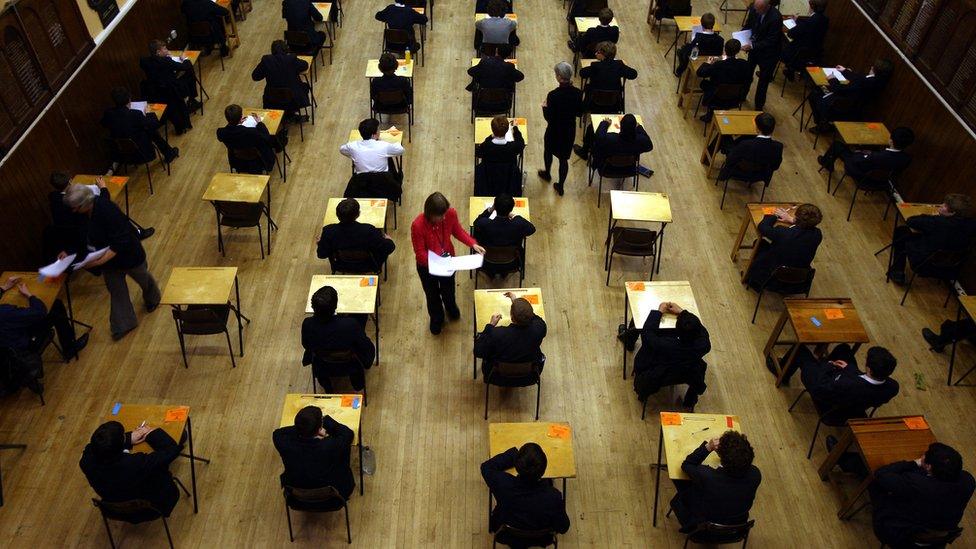
Mr Swinney said he wanted pupils to spend less time doing assessments and more time learning
Part of the effort to cut teacher workload has been to scrap some mandatory "unit assessments" which are marked by teachers before pupils sit their exams. These come into effect in the coming academic term, but there have been concerns they may make some exams last longer.
And one secondary teacher, Olivia Drennan, told the BBC's Good Morning Scotland programme that schools would still be able to put pupils forward for assessments, calling for a consistent approach.
She said: "If the agreement from the cabinet secretary is that unit assessments go, the unit assessments need to go. Leaving them there as potential stand-alone units that schools can choose to do means that some schools will chose to do them, some departments will choose to do them, some children will get advantages that others don't have.
"We need a consistent approach to this."
'Balance maintained'
Speaking on the same programme, Mr Swinney conceded that some exams may last longer, but said the balance between coursework and exams would be maintained.
He said: "What we have to make sure, what the Scottish Qualifications Authority has to make sure, is that our qualifications are strong and robust and demonstrate the quality of learning that young people have undertaken.
"What we'll see as a consequence of the changes that I've introduced is that young people will spend less time on assessment, and more time on learning. That's the way it should be in my view.
"Yes, in some circumstances exams have been extended, but the balance between exams and coursework has been maintained, so that young people, in what they do during the year in all subjects except for maths, will be to amass that portfolio of evidence and expertise that is fundamental to CfE to ensure they deliver the strong qualifications to which they are entitled."
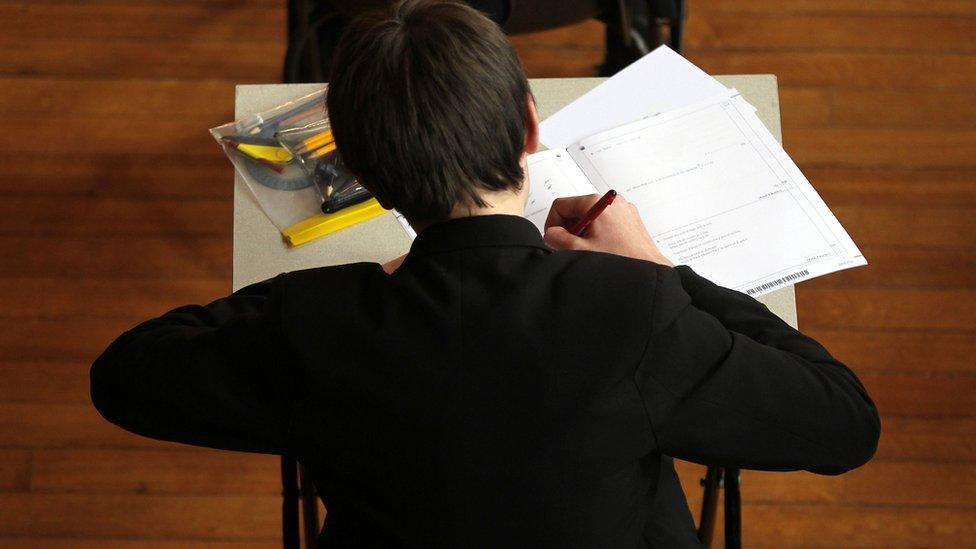
Mr Swinney insisted that CfE was "internationally acclaimed"
Scotland's performance has been declining in international education rankings, with the government's own figures recording falling literacy scores, and there have been concerns about the attainment gap between pupils from different backgrounds.
This has led to calls from the Scottish Conservatives for a "root and branch review" of CfE, with leader Ruth Davidson describing the SNP's record on education as an "absolute disgrace" and a "mark of shame".
Mr Swinney pointed to a 2015 review by the OECD (Organisation for Economic Co-operation and Development) which found there was "much to be positive about" in CfE.
He said: "The judgements that were made a long time before I became education secretary about Curriculum for Excellence were the correct judgements, and they were arrived at in partnership between government and local authorities, trade unions, parents, teachers and pupils, right across the education system within Scotland.
"We have a strong and robust curriculum in place; what we have to make sure is that we're constantly focused on improving performance.
"And when the data began to show that we face some challenges in relation to literacy and numeracy, the government acted through the National Improvement Framework to focus on improving performance in general as the OECD suggested we should, but crucially to closing the attainment gap between those young people who come from more deprived backgrounds, to make sure they have an equal chance to prosper as a result of the quality of their education.
"And it's that agenda that is now driving the education system within Scotland and giving us the opportunity to make sure every young person is able to fulfil their potential in Scotland, which is the objective of Curriculum for Excellence."
- Published15 June 2017
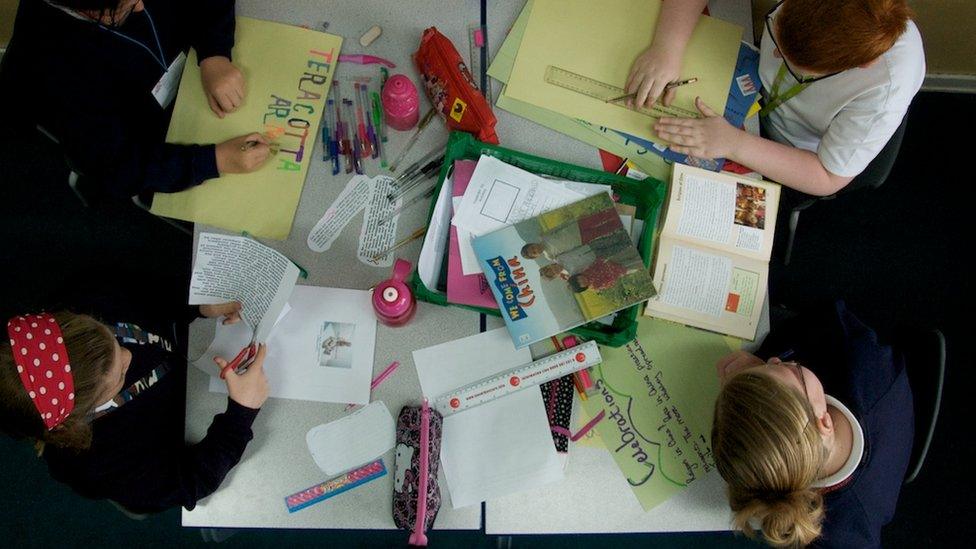
- Published31 March 2017

- Published4 March 2017
